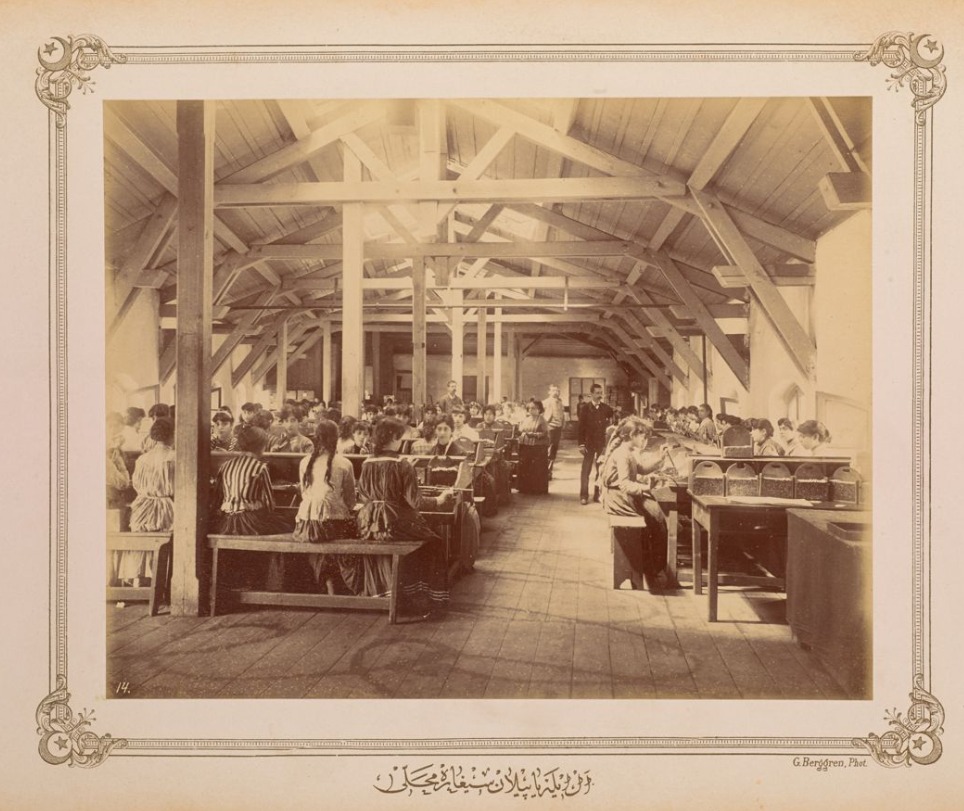Through interweaving the parallel processes of industrialisation and nation-building, GENDER AND LABOUR AT THE MARGINS OF MODERNITY: FEMALE FACTORY WORK IN TURKEY, 1930S-1950S online exhibit explores the two most prominent aspects of visible modernity in interwar Turkey: the image of the large factory and the status of women.
Credits
Görkem Akgöz
INTRODUCTION
Industrialisation and women’s participation in public life were among the key motifs of the Turkish Republican project, the hegemonic narrative of which was built on a strict repudiation of the imperial past. The two most condemned aspects of the imperial past were women’s repression and the semi-colonial character of the economic, political and social structure. Women’s changing public status was presented as the strongest indication of the former’s disappearance, while the large factory became an incandescent symbol of the Republic’s ambition and achievement –a physical embodiment of dreams about an economically as well as politically sovereign nation.
Here are sections of the exhibition:
- Introduction
- Industrialisation as Progress
- The Factory as National Space
- Celebrating Women on the Shop Floor
- Factory Women in the Ottoman Empire
- Women on Factory Work
- Continuity in the Midst of Change
- Conclusion
Görkem Akgöz is a historian from Turkey with a particular research interest in factories and industrial labour. Her main areas of focus are the history of labour and political economy along with women and gender history, social movements and cultural history. She founded and has been co-ordinating the Factory History Working Group as part of the European Labor History Network. Currently, she is a post-doctoral fellow at re:work (IGK Work and Human Life Cycle in Global History). Her current project “Gender and Labour at the Margins of Modernity: Representations of Female Factory Labour in Turkey, 1947-1960” is funded by the Gerda Henkel Stiftung. She is also working on her book tentatively titled “Between Nation and Class: Working at a Turkish State Factory, 1932-1950” to be published by Brill in 2021.

